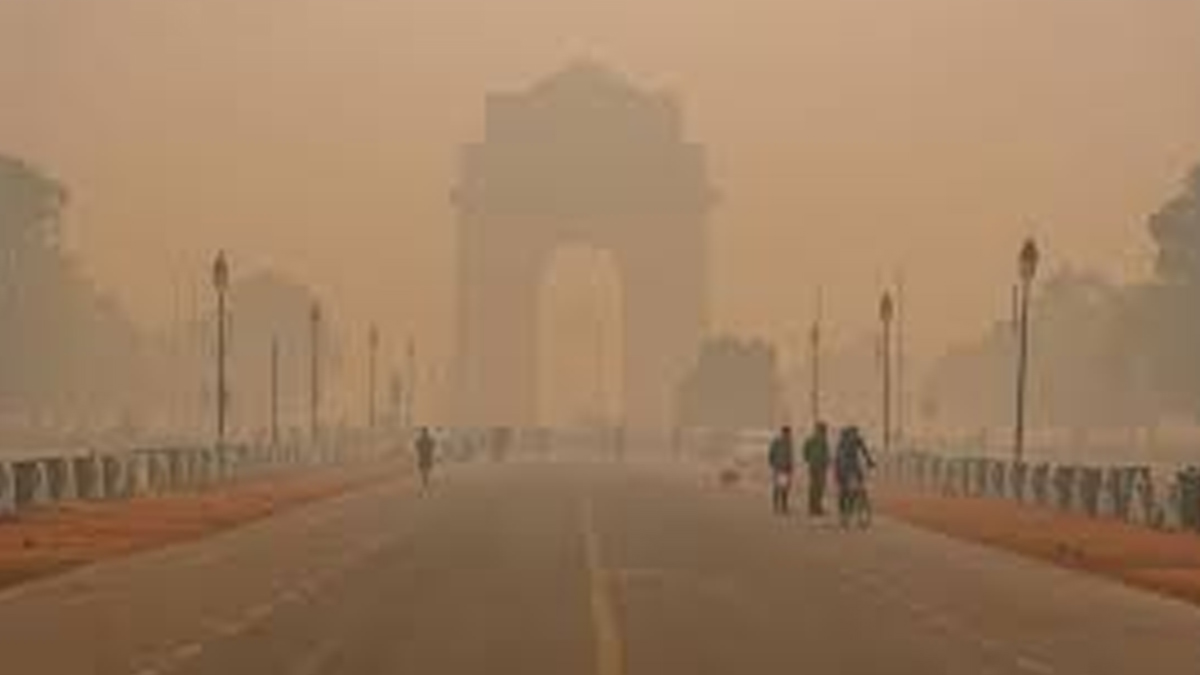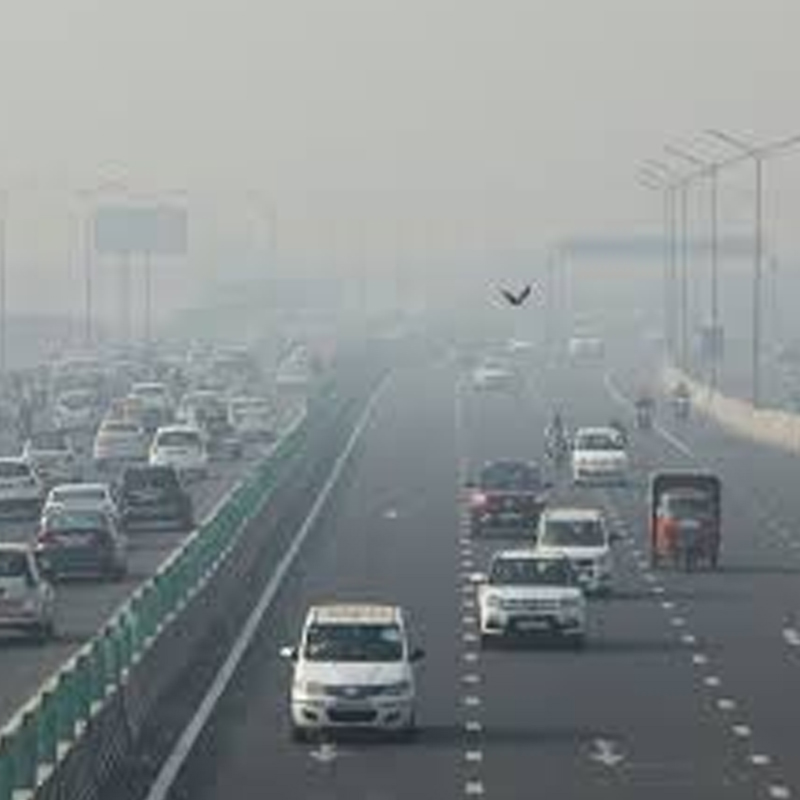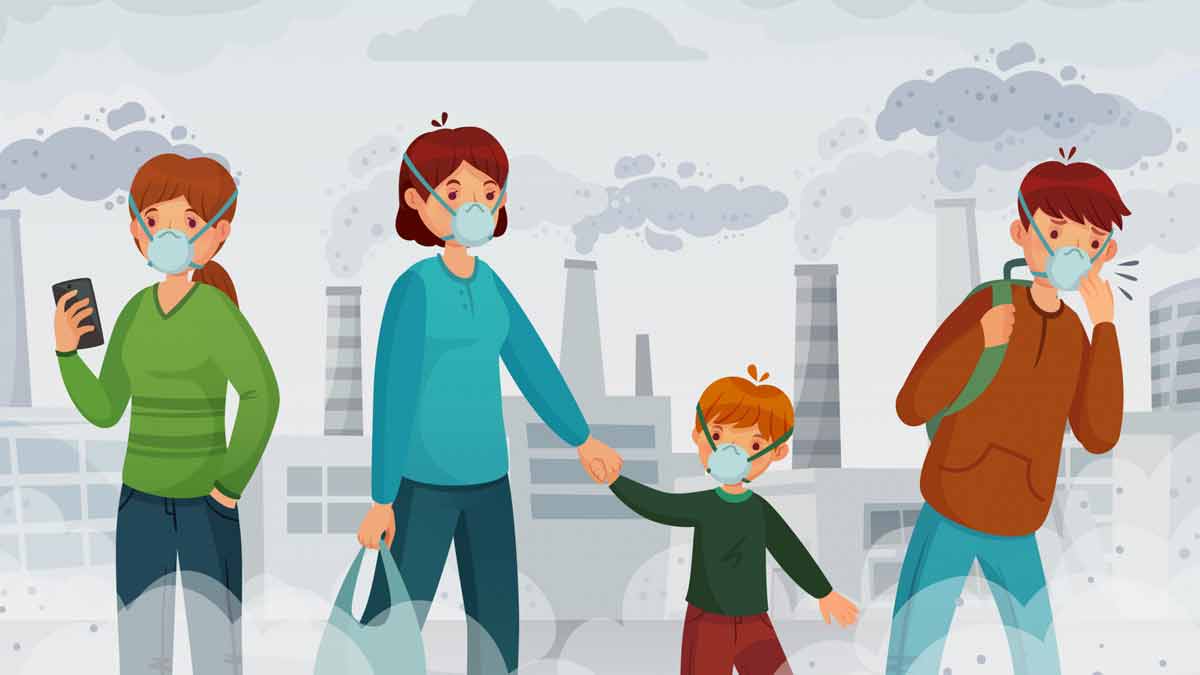
In response to the alarming surge in pollution levels, all government and private primary schools in Delhi will remain closed for the next two days, announced Delhi Chief Minister Arvind Kejriwal. The decision comes as the Air Quality Index (AQI) worsens, with at least 18 out of 37 monitoring stations in Delhi recording "severe" levels of pollution.
The Central government has taken urgent measures, imposing a ban on non-essential construction work in Delhi-NCR as a thick layer of hazardous haze shrouds the national capital. This move comes as pollution levels entered the "severe" zone for the first time this season, sparking concerns among doctors about a potential rise in respiratory problems.

Also Read: Consequences of Avoiding Mental Health Treatment: What You Need To Know
The Government has implemented the Graded Response Action Plan (GRAP) as an emergency response mechanism to combat poor air quality levels. Notably, this time, GRAP was put into action even before the situation deteriorated further, indicating the seriousness of the issue.
While scientists predict a continued spike in pollution levels over the next two weeks, authorities are urging citizens to take necessary precautions to safeguard their health. Residents are advised to stay indoors, wear masks, and limit outdoor activities to minimise exposure to the hazardous air. Stay tuned for further updates on this developing health crisis.
How to Protect Toddlers From Poor Air Quality
The toxic air pollution in Delhi NCR poses a grave threat to children, expecting mothers and increasingly concerning risks for their developing unborn children. Surprisingly, these past five to seven days, we have witnessed a concerning trend due to the pollution and smog in Delhi NCR, which is just the beginning of the season. We are observing a significant increase in paediatric cases, with children suffering from cough, cold, allergies, wheezing, and asthma. The situation is slowly becoming alarming.
Speaking with the editorial team of OnlyMyHealth, Dr Amit Gupta, Senior Consultant Paediatrician & Neonatologist, Motherhood Hospital shares tips to protect toddlers from poor air quality. Here is what he shared with us.
"The winters have just begun and I am noticing a sudden increase in children below the age of 5 years old having symptoms like wheezing, breathlessness, persistent coughs. These weren’t responding to the typical treatments they get for these issues. Regular decongestants are less effective in these cases . The pollution is destroying their health. They're missing school frequently due to regular coughs and colds. Missing school can lead them to be delayed in development. It's now well-established that kids experiencing high levels of air pollution like our NCR area are more likely to develop serious health problems in some cases even associated with cancer," Dr Gupta shared.

Children are especially vulnerable to air pollution when compared to us adults. Their short height and faster breathing makes it easier for them to breathe in particles floating around. In addition, their defence mechanisms aren’t as strong as ours so things like the cilia in their nose are unable to fully protect them from harmful stuff in the air especially when the nose is blocked and they are breathing from the mouth.
"In the case of the developing foetus, studies have shown that air pollution can disrupt normal development, impacting lung and brain development, which may result in long-term health problems for the child. Furthermore, prenatal exposure to air pollution has been linked to an increased risk of childhood respiratory conditions, cognitive impairments, low birth weight,premature delivery and behavioural issues. Research has revealed that the toxic air pollutants in this region, such as fine particulate matter (PM2.5), volatile organic compounds (VOCs), and heavy metals, can penetrate the placental barrier and directly affect both the mother and the unborn child," Dr Gupta added.
We can make a difference in our children’s immunity by being role models as responsible parents and community members. Encouraging them to eat well, exercise, and practise good hygiene is a great move.



.jpg)



